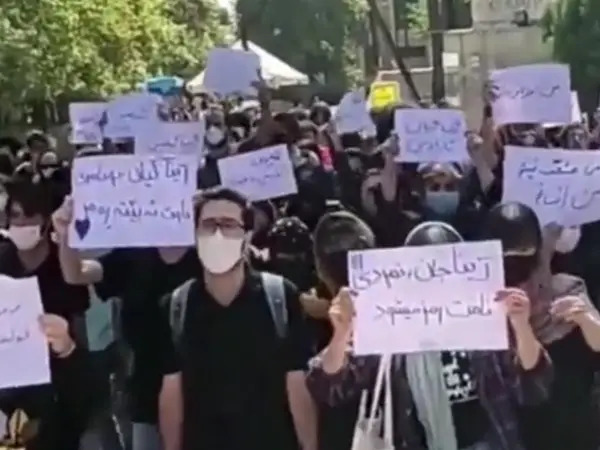Iran’s 'Reformists' have been side-lined during the current crisis, as neither the government nor the protesters consider them a serious political alternative.
The spokesman for Iran’s Reform Front, Abolfazl Shakouri-Rad says a bipolar situation has taken shape in Iranian politics and reformists have been left out of the political debate by both the hard-line government and the protesters who do not want an Islamic government.
“Reformists cannot do anything but sit on the fence and watch what is going on,” he said in an interview with the pro-reform Fararu website, adding that “the two main players in the bipolar game are fighting each other at the expense of the society. In the meantime, we Reformists do not know what is happening, what the future is going to look like and whether the current situation is going to serve the nation’s interests.”
It is not only Shakouri-Rad who is talking about a bipolar situation in Iran. Former Majles Speaker Gholam Ali Haddad Adel, a close relative of Supreme Leader Ali Khamenei has also expressed concern about the formation of a dangerous bipolar situation in Iran during a conference with hard-line commentators to seek a way out of the current crisis which has claimed at least 150 lives.
Haddad Adel was quoted as saying on October 4 that “The Iranian society is rapidly moving towards bipolarity, with radical hardliners on the one side and another group of people who disagree with them 100 percent.” This bipolarity is so much visible in the streets that many observers believe that the two the confrontation between the two poles might put the final nail in the Islamic Republic’s coffin.
The fact that both hardliner Haddad Adel, whose political positions are aligned with the ultraconservative Paydari Party, and Shakouri-Rad, a leading reformist figure agree on the existence and the nature of this bipolarity reveals the sensitive situation Iran and its people have been experiencing during the past three weeks.
The murder of Mahsa Amini in the custody of Iran’s notorious morality police turned into the largest antigovernment uprising in Iran’s modern history.
Shakouri-Rad said in the interview: “It was not only Mahsa’s death that led to this uprising. Her death only flared up the fire of accumulated dissatisfactions over the government’s performance.” He also said that the issue of hijab in the center of the event brought Iranian women and youths to the streets hoping for a change in their lifestyle.
He observed that even some of Iran’s conservatives are moved by what has happened, particularly because the way the government handled the whole episode.
Referring to the leading role of Iran’s youth in the protests, he said that most of the members of his own group, the reformist Unity of Nation Party are youngsters between 15 to 25 years old.
“This is a generation that believes it can achieve its demands only through shouting it in the streets. They do not believe in elections,” he said, but he did not mention that ruling hardliners made elections meaningless by allowing only their candidates to run.
Shakouri-Rad added that the gap between the government and citizens has widened as people have lost trust not only in the government but also in the Iranian media which can only echo what the government says. Meanwhile he acknowledged that foreign-based media including the Iran International TV have taken the lead in shaping public opinion in Iran.
“At the same time, social media posts criticizing the Iranian governments are ‘liked’ by thousands of Iranian users. Despite the restrictions imposed by the government, more Iranians are now-a-days on social media,” he said.
Shakouri-Rad maintained that this degree of dissatisfaction has always existed in Iran, but it has become stronger and more visible.
The politician concluded that “the current situation of political bipolarity is extremely dangerous, but we as reformists cannot even convince those who belong to the reform camp. People voted for us in several elections since 1997 but we did not have an eye-catching achievement. The younger generation no longer believes in us and as a result of that we have been marginalized in Iran.”
